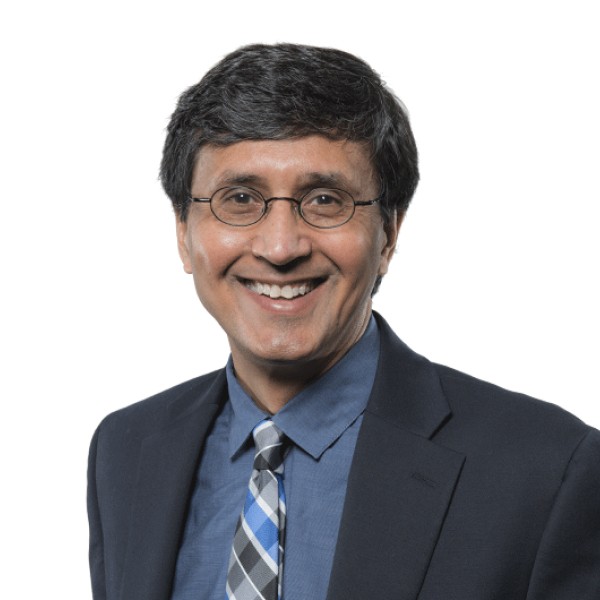Activity in my research group is aimed at discovering new ways to make complex molecules, designing unique strategies to families of natural products, and developing broadly effective methods for chemical synthesis, with a focus on enantioselective methods.
Chemistry is ultimately about chemical reactions—developing them, understanding them, and using them to make interesting, useful molecules. Much of the activity in my research group is aimed at discovering new ways to make complex molecules, including designing unique strategies to certain families of natural products and developing broadly effective methods for chemical synthesis.
The targets for our synthesis studies are selected for their intricate structures as well as their potent biological activities. We strive to devise concise, stereocontrolled, and high yielding routes using strategies that examine interesting aspects of structure and reactivity. Among the targets that we have successfully synthesized are elisapterosin B, pederin, the welwitindolinones, and strychnine.
The targets that we are currently pursuing include compounds that display potent anticancer or antibiotic activities.
In recent years, a significant part of my group has focused on the development of effective catalysts for enantioselective reactions. The biologically important Aspidosperma family of alkaloids provided the initial motivation for much of this work. We found that salen-based chiral complexes catalyze the Diels-Alder reactions of amino-substituted dienes and a broad range of dienophiles to produce the cycloadducts in high yields and excellent enantioselectivities.
Significantly, we discovered that TADDOL, a simple, commercially available chiral alcohol, functions as a catalyst for highly enantioselective cycloadditions. Reminiscent of enzymes and antibodies, hydrogen bonding to TADDOL provides both tremendous rate acceleration and exquisite selection for the formation of one enantiomer of the product. Considerable effort in the group is directed at the design and development of novel classes of hydrogen bonding catalysts, such as squaramides, for asymmetric synthesis.
University of Connecticut
B.S.
1980
University of Pennsylvania
Ph.D.
1986
Columbia University
Postdoctoral Fellow
1988
The Ohio State University
Assistant Professor
1994
The Ohio State University
Associate Professor
1995
The University of Chicago
Professor
Present
Li, L.; Rawal, V. H. Transition Metal-Free Difunctionalization of Unactivated Alkenes: Arylation/Azidation, Arylation/Chlorination, and Arylation/Cyanation. Chem 2024, 10, DOI:org/10.1016/j.chempr.2024.07.036
Li, L.; Hu, L.B.; Sae-Jew, J.; Rawal, V. H. Vinyltriarylbismuthonium Salts: Powerful Vehicles for α–Vinylation of Carbonyl Compounds, J. Am. Chem. Soc. 2024, 146, 18672–18681. DOI: org/10.1021/jacs.4c05709.
Baidilov, D.; Elkin, P. K.; Athe, S.; Rawal, V. H. Rapid Access to 2,2-Disubstituted Indolines via Dearomative Indolic-Claisen Rearrangement: Concise, Enantioselective Total Synthesis of (+)-Hinckdentine A. J. Am. Chem. Soc. 2023, 145, 14831-14838. DOI: 10.1021/jacs.3c03611.
Li, L.; Hu, L.B.; Sae-Jew, J.; Rawal, V. H. Vinyltriarylbismuthonium Salts: Powerful Vehicles for α–Vinylation of Carbonyl Compounds, J. Am. Chem. Soc. 2024, 146, 18672–18681. DOI: org/10.1021/jacs.4c05709.
Hu, L. B.; Rawal, V. H. Total Synthesis of the Chlorinated Pentacyclic Indole Alkaloid (+)-Ambiguine G, J. Am. Chem. Soc. 2021, 143, 10872–10875. DOI: https://doi.org/10.1021/jacs.1c05762.
Cassaidy, K. J.; Rawal, V. H. Enantioselective Total Synthesis of (+)-Heilonine, J. Am. Chem. Soc. 2021, 143, 16394–16400.DOI: https://doi.org/10.1021/jacs.1c08756.
Rombola, M.; Sumaria, C.S.; Montgomery, T.D.; Rawal, V.H. Development of Chiral, Bifunctional Thiosquaramides: Enantioselective Michael Additions of Barbituric Acids to Nitroalkenes, J. Am. Chem. Soc. 2017, 139, 5297-5300. DOI: 10.1021/jacs.7b01115.
Hutson, J. E.; Türkmen, Y. E.; Rawal, V. H. Salen Promoted Enantioselective Nazarov Cyclizations of Activated and Unactivated Dienones, J. Am. Chem. Soc. 2013, 135, 4988−4991. DOI: 10.1021/ja401908m.
Allan, K. M.; Kobayashi, K.; Rawal, V. H. A Unified Route to the Welwitindolinone Alkaloids: Total Syntheses of (−)-N-Methylwelwitindolinone C Isothiocyanate, (−)-N-Methylwelwitindolinone C Isonitrile, and (−)-3-Hydroxy-N-methylwelwitindolinone C Isothiocyanate. J. Am. Chem. Soc. 2012, 134, 1392–1395. PMID: 22235963. DOI: 10.1021/ja210793x.
Malerich, J. P.; Hagihara, K.; Rawal, V. H. Chiral Squaramide Derivatives are Excellent Hydrogen Bond Donor Catalysts. J. Am. Chem. Soc. 2008, 130, 14416-14417. PMID: 18847268. DOI: 10.1021/ja805693p.
Thadani, A. N.; Stankovic, A. R.; Rawal, V. H. Enantioselective Diels-Alder Reactions Catalyzed by Hydrogen Bonding. Proc. Natl. Acad. Sci. 2004, 101, 5846-5850. PMID: 15069185. DOI: 10.1073/pnas.0308545101.
Huang, Y.; Unni, A. K.; Thadani, A. N.; Rawal, V. H. Hydrogen bonding: Single Enantiomers from a Chiral-Alcohol Catalyst. Nature, 2003, 424, 146. PMID: 12853945. DOI: 10.1038/424146a.
American Chemical Society, Award for Creative Work in Synthetic Organic Chemistry
2024
CNRS (France) Ambassador in Chemical Sciences, 2024 International Society of Heterocyclic Chemistry, E.C. Taylor Senior Award
2022
Japan Society for the Promotions of Science (JSPS) Fellowship
2015
Novartis International Chemistry Lectureship
2007
Fellow of the American Association for the Advancement of Science
2004
American Chemical Society Arthur C. Cope Scholar Award
2003
Pfizer Research Award for Synthetic Organic Chemistry
1995 - 1998
Merck Young Investigator Award
1995
American Cyanamid Faculty Award
1994
Eli Lilly Grantee Award
1993 - 1995
American Cancer Society Junior Faculty Research Award
1990 - 1993
DuPont Young Faculty Award
1988 - 1989
Viresh Rawal, Guangbin Dong, and Mark Levin selected as 2024 ACS Award Winners
Rawal lab reports concise total synthesis of indole alkaloid (−)-ambiguine P
